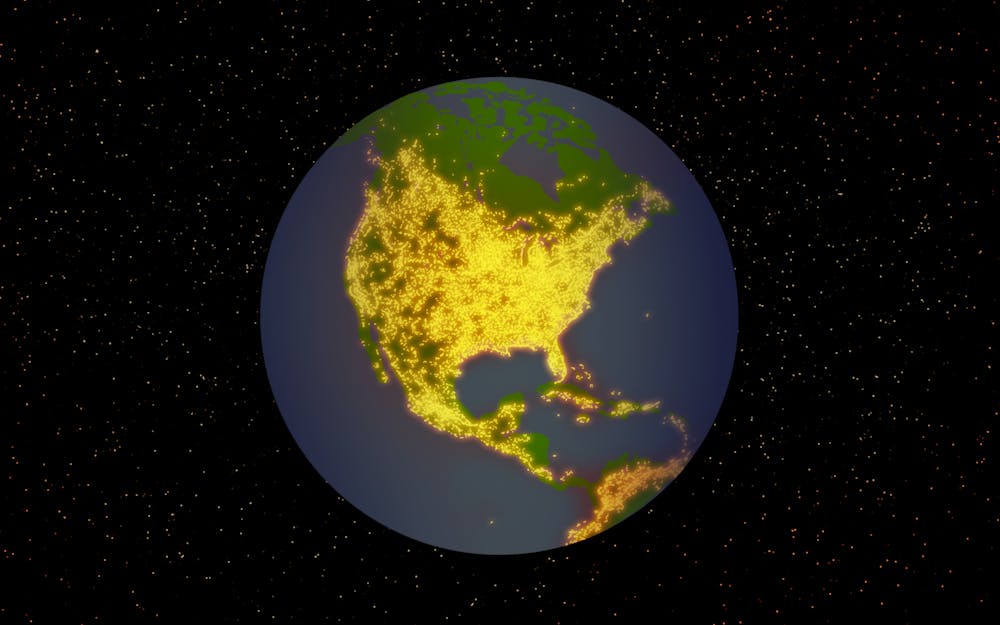One of the largest issues our generation and society is dealing with is the energy crisis.
We can’t sustain a technologically advanced society if we don’t have the energy sufficient enough to support it. We have relied and still rely heavily on fossil fuels, but the impact of climate change is reminding us of the need for a renewable, clean energy source.
There are a variety of energy sources – ones that don’t destroy our ozone – that we can choose from: solar panels, windfarms, hydroelectric dams, geothermal plants, biomass and nuclear energy.
From this list of renewable energy sources, nuclear energy is often viewed as a negative thing, and the general public has a lot of skewed views on it.
One of the largest misconceptions of nuclear energy is that it is dangerous to society. When you bring up nuclear power to someone, their mind often races towards the Chernobyl or Fukushima nuclear disasters, with the fears of meltdowns and radiation in their heads.
[Related: OPINION: America’s infrastructure is crumbling]
They automatically think of disaster and innocent people losing their lives and homes. I’m not in any way diminishing these tragic events. What I am saying is that we have learned since these events, and the number of actual meltdowns is much lower than perceived.
Since the first nuclear power plant was made in 1951, a total of 18,500 cumulative reactor years have passed. Reactor years are the number of years a singular reactor is active. So 18,500 reactors have run or are still running.
Within this time span, there has only been a total of three actual meltdowns: Three Mile Island, Chernobyl, and Fukushima.
These events were tragic, yes, but think about the statistics. Three is a rather low number when we think about the hundreds of reactors that function today. Today there are 440 operational nuclear reactors in the world, and there are countless safety guidelines and regulations in order to ensure another incident won’t happen.
Another popular misconception is that nuclear energy isn’t clean. Nuclear power plants aren’t pumping out barrels of glowing-green-goo and throwing them into the nearest river or lake.
The majority of nuclear waste, around 95%, is deemed as low-level waste and contains low levels of radioactivity. This type of waste consists of work clothes and items used at the plant that are disposed of.
About 4% of waste is considered to have an intermediate level of radioactivity, and less than 1% is considered to have a high level of radioactivity.
These numbers are very low when compared to the claims made by other energy groups. Even then, nuclear power plants have a process known as nuclear recycling, where they can reuse the spent fuel from previous reactors.
Nuclear power plants require little space to provide abundant energy.
Solar panel and wind farms need vast amounts of land to function. Solar panels don’t need direct sunlight to work, but they will produce less electricity with low sunlight. Wind turbines don’t necessarily need wind constantly to work, but they need to be placed in remote locations and can damage nearby wildlife and fauna.
[Related: OPINION: What are we prepared to do to halt climate change?]
With all these limitations and drawbacks, they still don’t provide as much energy as nuclear power.
A typical 1,000-megawatt facility typically needs a little more than one square mile to operate. Wind farms require 360 times more land area, and solar farms require 75 times more, all for the same amount of energy to be produced.
So please take this into consideration the next time someone brings up nuclear energy. It is safe, it is clean and efficient, and it leaves a smaller footprint on nature than solar and wind power do.
It is the most efficient source of clean, renewable energy and it is time the world recognizes this. Nuclear energy can help save our future. It’s up to us to look past its misconceptions.
Nick Moser (he/him) is a senior majoring in English and minoring in political science and film production.






